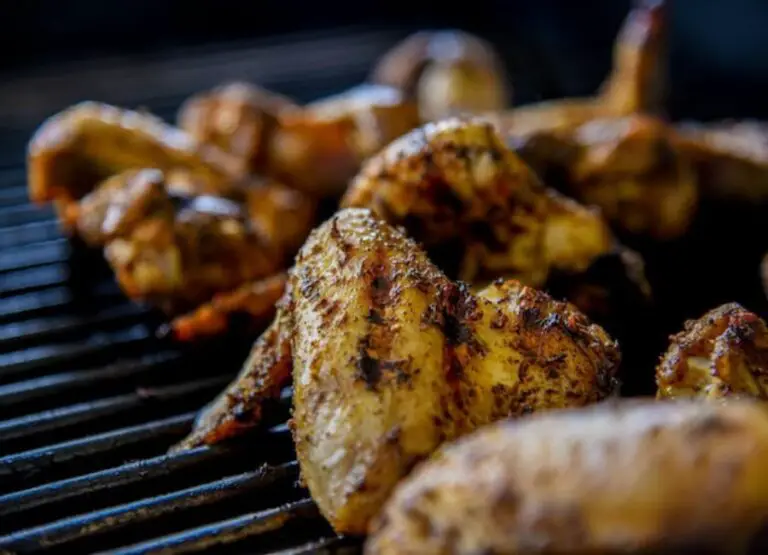How Long After Eating Raw Chicken Will You Get Sick
A potentially hazardous activity that might cause food poisoning is eating raw chicken.
Salmonella and Campylobacter are two dangerous bacteria that can be present in raw chicken and produce symptoms including nausea, vomiting, diarrhea, and fever.
In order to respond quickly if necessary, it is critical to comprehend the timeframe for when symptoms may appear after ingesting raw chicken.
In this article, we’ll look at the timetable for getting unwell after eating raw chicken as well as the variables that might influence it.
We’ll also go through the signs of food poisoning from raw chicken and what to do if you become sick.
Can you get sick after eating raw chicken?
Yes, consuming raw chicken may really harm you.
In order to prevent contracting a foodborne disease, it is crucial to fully cook the chicken to an internal temperature of at least 165 degrees Fahrenheit.
Additionally, it’s crucial to adopt appropriate food safety practices, such as cleaning your hands and surfaces after handling raw poultry and separating uncooked and cooked food from one another.
Learn more about the dangers of eating raw chicken.
How Long After Eating Raw Chicken Will You Get Sick
For food poisoning brought on by the salmonella or campylobacter bacteria frequently found in raw chicken, the incubation period, or the amount of time from the time a person consumes infected food before symptoms appear, can range from a few hours to two days.
The number of bacteria ingested, a person’s age, general health, and other variables can all affect it differently for various people.
It’s crucial to get medical help if you eat raw chicken and have symptoms including nausea, vomiting, diarrhea, fever, and stomach cramps.
How Food Poisoning Occurs from Eating Raw Chicken
Bacteria like Salmonella or Campylobacter can cause food illness if the raw chicken is consumed.
The surface of raw chicken contains these germs, which if handled or cooked improperly, can quickly grow.
These bacteria can infect a person and result in symptoms including nausea, vomiting, diarrhea, and fever.
Always thoroughly wash your hands before handling raw chicken, as well as any surfaces and utensils that come into touch with it.
You should also cook your chicken until it reaches an internal temperature of at least 165 °F.
Symptoms of Food Poisoning from Eating Raw Chicken
The symptoms of food poisoning from eating raw chicken can include:
- Nausea: Vomiting frequently precedes the stomach-unease sensation known as nausea.
- Vomiting: The act of forcing the contents of the stomach into the mouth is known as vomiting.
- Abdominal pain and cramping: A dull or intense ache in the abdomen that is frequently accompanied by muscular spasms or contractions is known as abdominal discomfort and cramping.
- Diarrhea: Diarrhea is a disorder that causes frequent, watery bowel motions by altering the frequency, volume, and consistency of feces.
- Fever: Fever is an elevation of body temperature over normal, frequently brought on by an illness.
- Headache: This is discomfort or pain in the head, neck, or scalp.
- Dehydration: Dehydration is a state in which the body doesn’t have enough fluid to operate normally. It can be brought on by significant fluid loss via vomiting, diarrhea, or perspiration.
Prevention of Food Poisoning from Eating Raw Chicken
To prevent food poisoning from eating raw chicken, follow these steps:
- Before and after handling raw chicken, thoroughly wash your hands and kitchen surfaces with soap and hot water.
- Store raw chicken separately from other foods to prevent cross-contamination.
- To destroy dangerous microorganisms, cook the chicken to an internal temperature of 165 °F (73 °C).
- Marinate raw chicken in the refrigerator, not on the counter.
- To determine the chicken’s internal temperature, use a food thermometer.
- Avoid consuming the fluids from raw or undercooked chicken.
- Utilize leftovers within 3–4 days after storing them properly.
You may drastically lower your chance of contracting food poisoning from consuming raw chicken according to these instructions.
Learn more about microwaving raw chicken.
Treatment of Food Poisoning from Eating Raw Chicken
The symptoms of food poisoning from consuming raw chicken include nausea, vomiting, diarrhea, and stomach cramps.
Typically, the therapy involves self-care activities like:
- Hydrating: Drink lots of liquids, such as water or clear broths, to stay hydrated and avoid becoming dehydrated.
- Resting: Get lots of sleep, and until you feel better, stay away from solid meals.
- Taking over-the-counter meds: You can use over-the-counter medications like acetaminophen (Tylenol) for pain and fever as well as anti-diarrhea medicine to reduce symptoms.
It’s crucial to consult a doctor if your symptoms intensify or continue, especially if you have a compromised immune system or other underlying medical disorders.
Antibiotics could be required in extreme circumstances to eradicate the illness.
Learn more about the dangers of eating raw chicken liver.
Factors affecting how long you will get sick after eating raw chicken
There are several factors that can affect how long someone will get sick after eating raw chicken, including:
- Bacteria intake: Consuming a lot of infected raw chicken increases the likelihood of getting sick and the intensity of the symptoms.
- Immune system: Consuming raw chicken might cause food poisoning in those with weakened immune systems.
- Personal hygiene: Poor personal hygiene might raise the possibility of being ill from contaminated raw chicken.
- Type of bacteria: The type of bacteria that infected the raw chicken can influence how long someone will be unwell since different varieties of bacteria have different incubation times and symptom severity ranges.
- Individual susceptibility: Some people may be more susceptible to the effects of dangerous germs contained in raw chicken or may be more resistant to them.
- Age: Due to possible weakened immune systems, children and elderly persons are more vulnerable to food poisoning.
- Health status: People with chronic diseases, such as diabetes, liver disease, and HIV, may be more susceptible to food poisoning because they have compromised immune systems.
- Method of preparation: The risk of food poisoning might vary depending on how the raw chicken is cooked, such as by marinating or breading it. If adequate food handling procedures are not used, bacteria can quickly spread to other foods and kitchen surfaces.
Conclusion
Consuming raw chicken is a dangerous practice that can lead to food illness.
The length of time it takes for symptoms to appear after eating raw chicken might vary based on a number of variables, including the kind and quantity of germs present and the health of the individual.
Generally speaking, symptoms might start to show up hours to days after being exposed to hazardous microorganisms.
It’s critical to recognize the signs of food poisoning and, if required, seek immediate medical assistance.
It is advised to always completely cook the chicken to a safe internal temperature and to maintain excellent hygiene while handling raw poultry in order to prevent food poisoning from raw chicken.
By adhering to these recommendations, you may lessen the possibility of contracting food poisoning and relax while eating.
References



![Can You Eat Chicken Sausage When Pregnant [Answered]](https://foodcreeks.com/wp-content/uploads/2023/02/Can-You-Eat-Chicken-Sausage-When-Pregnant-768x555.jpg)
![Can You Eat Raw Chicken Liver [Explained]](https://foodcreeks.com/wp-content/uploads/2023/02/Can-You-Eat-Raw-Chicken-Liver-768x555.jpg)

![How To Prevent Salmonella In Chicken [11 Hints]](https://foodcreeks.com/wp-content/uploads/2023/05/How-To-Prevent-Salmonella-In-Chicken-768x555.jpg)

